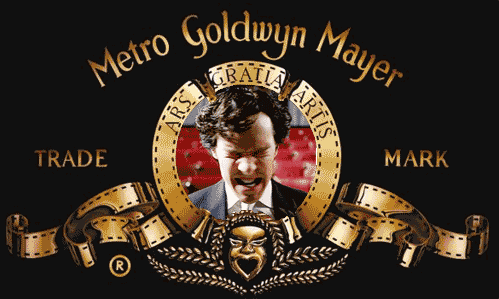(by Claire)
Here are the passages I made notes on in our final reading of "The Sign of the Four":
(end of Chp. 7) "On the dog raced through sawdust and shavings, down an alley, round a passage, between two wood-piles, and finally, with a triumphant yelp, sprang upon a large barrel which still stood upon the hand-trolley on which it had been brought. With lolling tongue and blinking eyes, Toby stood upon the cask, looking from one to the other of us for some sign of appreciation. The staves of the barrel and the wheels of the trolley were smeared with a dark liquid, and the whole air was heavy with the smell of creasote.
Sherlock Holmes and I looked blankly at each other, and then burst simultaneously into an uncontrollable fit of laughter."
I like this passage because it is an anti-climactic ending to a very tense chapter. If you remember earlier int he chapter, Toby had been tracing the creasote across London, trying to track the criminal who had accidentally stepped in it. This passage also shows how Holmes and Watson were good friends, and enjoyed their "unusual" business of solving crimes (see picture below for modern day adaptation of laughing at a crime scene)
 |
Giving credit where credit is due:
http://www.pinterest.com/kirstenerin/sherlocked/ |
The next passage I liked was towards the middle of Chapter 8, where Holmes reads the newspaper article. I like this one because it demonstrates how much the Scotland Yard/police force really needs Holmes.
"'About twelve o'clock last night,' said the Standard, 'Mr. Bartholomew Sholto, of Pondicherry Lodge, Upper Norwood, was found dead in his room under circumstances which point to foul play. As far as we can learn, no actual traces of violence were found upon Mr. Sholto's person, but a valuable collection of Indian gems which the deceased gentleman had inherited from his father has been carried off. The discovery was first made by Mr. Sherlock Holmes and Dr. Watson, who had called at the house with mr. Thaddeus Sholto, brother of the deceased. By a singular piece of good fortune, Mr. Athelney Jones, the well-known member of the detective police force, happened to be at the Norwood Police Station, and was on the ground within half and hour of the first alarm. His trained and experienced faculties were at once directed towards the detection of the criminals, with the gratifying result that the brother, Thaddeus Sholto, has already been arrested, together with the housekeeper, Mrs. Bernstone, and Indian butler named Lal Rao, and a porter, or gatekeeper, named McMurdo. It is quite certain that the thief or thieves were well acquainted with the house, for Mr. Jones's well-known technical knowledge and his powers of minute observation have enabled him to prove conclusively that the miscreants could not have entered by the door or by the window, but must have made their way across the roof of the building, and so through a trap-door into a room which communicated with that in which the body was found. This fact, which has been very clearly made out, proves conclusively that it was no mere haphazard burglary. the prompt and energetic action of the officers of the law sows the great advantage of the presence on such occasions of a single vigorous and masterful mind. We cannot but think that is supplies an argument to those who would wish to see our detectives more decentralized, and so brought into closer and more effective touch with the cases which it is their duty to investigate.'
'Isn't it gorgeous!' said Holmes, grinning over his coffee-cup. 'What do you think of it?'"
I like this passage because it shows that Holmes' is at least capable of laughing at something. His pure amusement at the lack of knowledge and experience that the police force has is, in itself, amusing. The passage is also funny because Jones had just mocked Holmes and called him one who jumped to crazy conclusions, etc, when really, Jones is the one who does just that. Irony?!
Any questions?
~Claire






